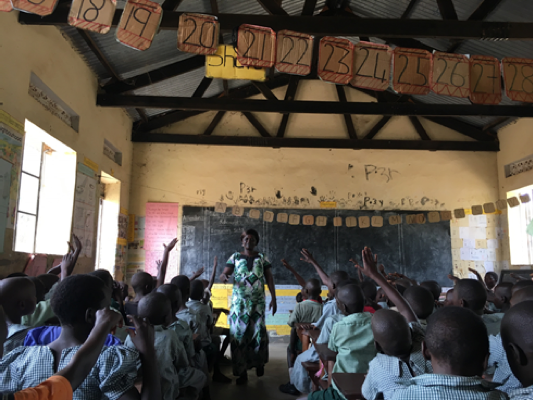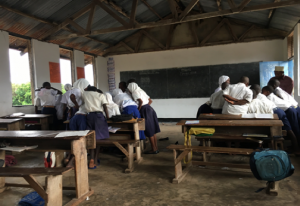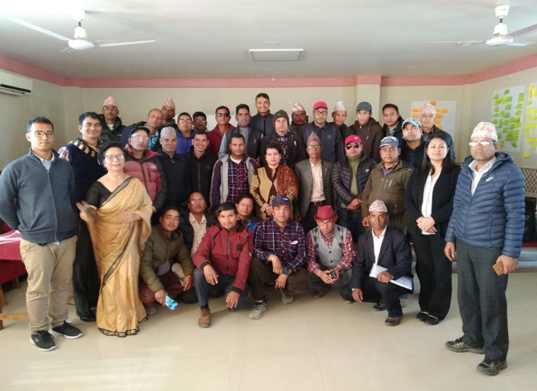My experiences as a member of the Punjabi community in British Columbia first led me to think about gender and racial inequalities and the need to challenge prejudice and discrimination. Frequent travels to visit extended family in India also opened my eyes to the existence of suffering and inequity on a global scale. When I learned that there was such a thing as ‘studying international development’, I did not hesitate to choose this as my area of study for my Bachelors, Masters, and Doctorate degrees.
In addition to ‘studying development’, I was able to take part in overseas internships and junior level contracts that enabled me to think about the complexities of ‘practising development’ and the need to contribute to positive change in the world. I discovered that there were many different approaches to development. Yet, I was frustrated that development actors did not always question their own ethics and impacts. For this reason, I encourage students to ‘see and experience development’ from as many angles as possible. All of these experiences will help them to shape their own ethics and motivations for contributing to social justice.
My doctoral research brought me to the multi-ethnic island of Mauritius in the Indian Ocean, where I was examining how intersecting inequalities affect the abilities of different people and groups to emerge out of poverty and to experience inclusion and well-being. I was disheartened to see how ethnic and racial discrimination in everyday life prevented some people from feeling included and hopeful for their future, and for their children’s futures. Socio-cultural norms and values also led to the social exclusion and poverty of elderly and widowed women in a particular ethnic group. Documenting people’s testimonies of their exclusion from families, communities, and society over eighteen months of field work was sobering, yet it reinforced my drive to give a voice to those who had been silenced.
After completing my PhD, I wanted to further understand intersectional inequalities and the experiences of excluded and marginalized people and groups. So, I began to work as a development consultant in different countries in Sub-Saharan African and South Asia. Over fifteen years, I worked with government ministries, United Nations agencies, development donors, and NGOs on gender equality projects and programs. This work sharpened my focus on intersectional gender inequalities and the need to effect change on the root causes of inequalities – harmful socio-cultural norms, values, beliefs, and practices. I also began to understand that it was necessary to engage men and boys in the difficult task of challenging gender bias and discrimination. My experiences in global education and health projects revealed that wonderful things started to happen when persons of all ages, genders, and social identities were able to see each other as partners, with the collective goal of challenging harmful socio-cultural norms for greater equality.

I have included some photos from two recent development consultancies. During a multi-country gender assessment in East African primary schools, I found that some male and female teachers had been trained in gender-responsive pedagogy, and female students said that they felt more valued and included in the classroom. However, gender biases and stereotypes were still affecting the abilities of some girls and boys to complete primary school and to transition to the secondary level. Girls were particularly negatively impacted by socio-cultural norms that led to early marriage and gender-based violence, as well as by a lack of adequate sanitary facilities at school.
At a gender sensitization workshop in an isolated district of Nepal, while the majority of local government education officials were male, I was encouraged to see that some of them understood the need for girls to be educated. These officials were often working with inadequate support and resources in a newly decentralized education system, and they spoke of the challenges of tackling gender discrimination at a household level. Positively, local male government officials who were ‘gender equality champions’ were able to engage fathers and husbands in their local communities to discuss gender norms, beliefs, and practices.

I look forward to taking part in the United Nations’ 65th Commission on the Status of Women (CSW). For me, ‘leaving no one behind’ is one of the most important principles that have emerged from the United Nations. It is a principle that aligns with my personal goal of making the excluded, vulnerable, and marginalized in all societies seen and heard, and with my current research interests in socio-cultural norms and marginalization. The 65th CSW themes of women’s full and effective participation and decision-making and the elimination of gender-based violence are critical issues that need to be addressed in every context and at every level. In order for women to assume leadership positions in public life, and in order to reduce violence that disproportionately affects women and girls, socio-cultural norms must be tackled, and men and boys must be engaged as partners.
Listening to students at the University of the Fraser Valley speak about their own experiences in Canada and elsewhere reminds me that tackling intersectional gender inequalities is a common fight, uniting people and groups in the global North and South. As I do with my development practitioner experiences, I plan to bring what I will learn from the 65th CSW into classrooms at the University of the Fraser Valley. I will continue to encourage young people in BC, and particularly those from marginalized groups, to engage with communities around the world to fight for greater social justice and equality.

Dr. Geetanjali Gill, Assistant Professor, University of the Fraser Valley, Global Development Studies Program

